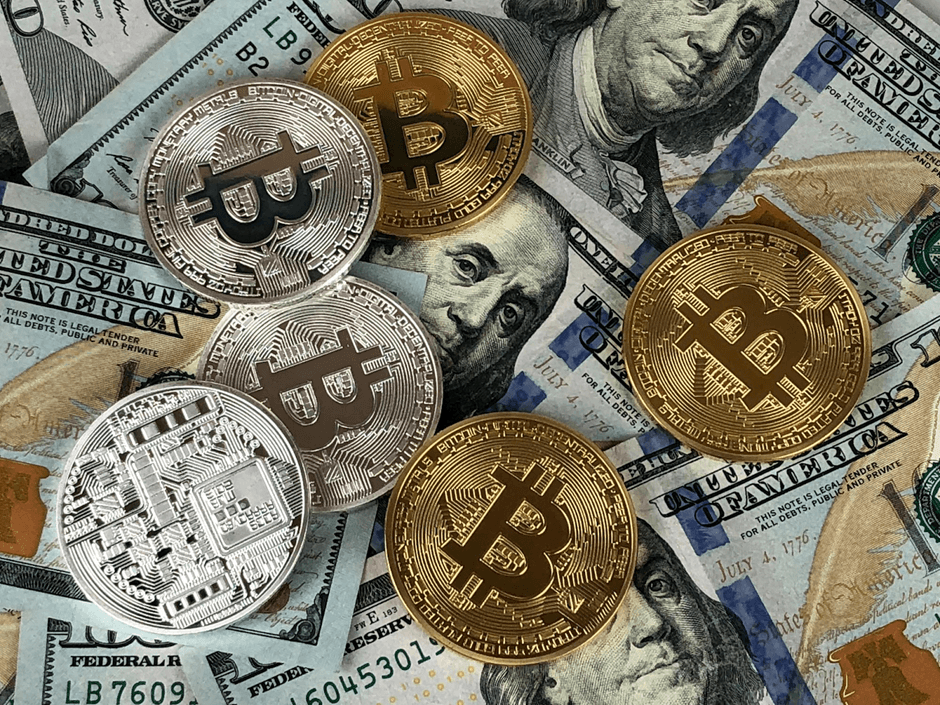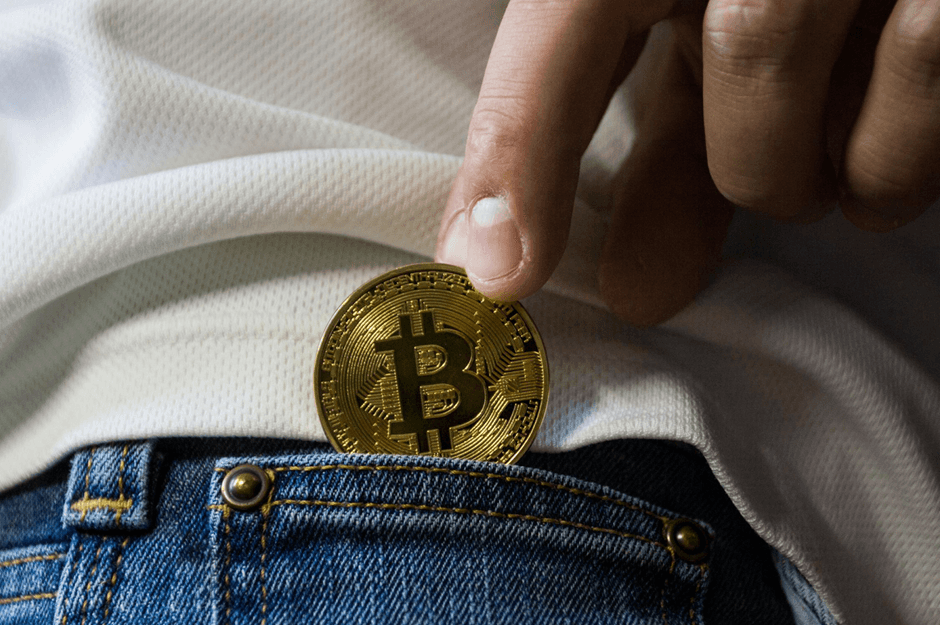Crypto Myths Debunked: Everyone Should Know This
Crypto Myths Debunked: Everyone Should Know This
Crypto Myths Debunked: Everyone Should Know This
Crypto Myths Debunked: Everyone Should Know This
Shashank Kothari






Cryptocurrencies—love or hate them—are here to stay. They are at the forefront of this digital financial revolution and banks are feeling the pressure to improve, driven by people’s expectations for faster, more seamless money movement.
The data supports this shift: by 2029, digital-savvy individuals will dominate 72% of the workforce. And by 2030, they’re projected to control $33 trillion globally—redefining not only how they earn but also how they manage finances.
A survey by GOBankingRates found that many are open to linking bank accounts with crypto exchanges, showing a willingness to explore tech-forward financial solutions.
Unfortunately due to new developments there comes a lot of confusion regarding cryptocurrencies. Read on to uncover the truth about crypto myths as we debunk major crypto misconceptions.
Myth #1: Crypto Is Only Used for Illicit Activities

Reality Check: This is indeed one of the oldest myths, even older than Bitcoin. This is the leading cryptocurrency, and there have always been people who engaged in criminal activities while dealing with it ( just like cash or credit cards). About 0.34% of crypto activities in 2023 have been linked to Crime. What of we those normal people? We also purchase, make investments or send money.
Fun Fact: Many nations, including the United Arab Emirates, are waging war against crypto crimes, and Dubai is even positioning itself as a city that caters to cryptos excessively. Criminals? They really aren’t going to like that one.
Myth #2: Cryptocurrencies Have No Real Value
Reality Check: “If it’s not physical, then what makes it valuable?” People are quite reasonable about this situation: ‘Crypto is confusing!’ But value is a matter of perception. How did the cost of Bitcoin rise from nearly zero in 2009 to over seventy-seven thousand dollars in 2024? As for the second-priced cryptocurrency, Ethereum – it creates everything from NFTs to smart contracts; this usefulness equals overwhelming worth.
Fun Fact: There are various serious companies in the UAE that have begun taking real estate transactions using cryptocurrency as a payment method. How about purchasing a Dubai penthouse with Bitcoin now?
Myth #3: There’s No Security in Crypto

Reality Check: Cryptocurrencies use blockchain technology, which is virtually impenetrable. To put it simply, it is a computerized book of records which is secure and has minimal chances of being tampered with. Nonetheless, the security of one’s crypto is determined by the storage method employed.
There is a threat of hacks and poor passwords, such as stealing from exchanges; however, the risk of hacking is practically zero if cold storage (keeping your cryptographic tokens away from the internet) is employed.
Fun Fact: It is worth mentioning that anyone and any business has the opportunity to keep crypto on a disk, such as a USB stick. That’s cold storage, but for crypto, it is how you put it in a vault.
Myth #4: Cryptos are Bad for the Environment
Reality Check: Yes, it is true that energy-intensive cryptos such as Bitcoin exist; however, not every cryptocurrency operates in such a manner. Ether, for instance, transitioned to a system called “Proof of Stake”, which boasts low energy consumption, accounting for as low as 0.05% of the prior system. Furthermore, many of the energy ventures that hawk crypto coins are turning towards clean energy sources.
Fun Fact: Dubai aims to be a green city, and some of the crypto miners here are going to solar energy to run their rigs. Green crypto is the future. Green cryptocurrency is essential.

Reality Check: The first attempts of this particular interview were made from the perspective that the critics of the cryptocurrency understood it mainly as a scam – dishonest trade in useless created currencies. Sure, the cryptocurrency world does have its scams. But the currencies themselves? Perfectly real. Most scams come from scummy people who actually try to use the system to lure people into investing in fake opportunities or phishing scams. Be smart, and stick to verified exchanges and wallets.
Fun Fact: The UAE is so crypto-friendly that it's working on regulations to protect users from scams. Plus, major companies like Tesla and PayPal accept crypto. Scams can happen, but crypto itself isn’t the villain.
Myth #6: Cryptos Have No Use in the Real World
Reality Check: First of all, let us clarify that crypto is not akin to imaginary money that exerts no worth in the real world. As a matter of fact, there are things like forks, such as Bitcoin and forks, which already cope with some stuff, from your daily coffee to the purchase of super-pricey cars. This is not a mere projection; this is what is happening now. Microsoft and Overstock, for example, are also entering the realm of crypto and facilitating their customers.
Wait! Many people might say that it’s still the early age, but young professionals in, say, the UAE are starting to use crypto to actually purchase things, and I mean pretty valuable things. Not just TVs or gadgets. We are talking about real estate, luxury cars, and even expensive holidays.
Imagine going to a car showroom in Dubai and debating the sale of a Lamborghini using Bitcoin as a medium of exchange. This type of imagination sounds like it’s borrowed from a movie of the future. But it is real. Many people already bought everything from Lambos to the million-dollar properties and paid in crypto.
And it is not restricted only to the UAE. All around, the trend of accepting crypto is taking place in businesses quite fast. Shops, food places, and even airlines are following the trend. It is only a matter of time before one goes to a shop with their smartphone whose screen displays the bitcoins they intend to spend, just as it is today when people go with their debit cards to the shop as more companies embrace blockchain technology.
The reality is that crypto exists in our world today and going by the increasing trends; it will be integrated into most of our everyday purchases and transactions soon. Exactly, the next time a person claims that crypto has no physical application, give them this reality check.
Fun Fact: A few residents of Dubai have also been buying themselves Lamborghinis with the help of digital currency. So much for living the fantasy!

Reality Check: Hold your horses! While crypto has a bright future, replacing traditional money will not happen anytime soon. Governments still control fiat currencies (like the US dollar or UAE dirham), and they’re not giving that up easily. However, we can see more countries adopting central bank digital currencies (CBDCs), which would blend the best of both worlds.
Fun Fact: Dubai has launched its own blockchain strategy, and they’re already testing government-backed digital currencies. The future might not be entirely crypto, but it’s definitely digital!
Conclusion
Cryptocurrencies are still in their early days, but they’re growing fast. As a tech-savvy individual, you’ve got a front-row seat to the future of money. Don’t let myths cloud your judgment—crypto is complex but full of potential. Keep learning, stay curious, and, most importantly, stay safe when navigating this exciting digital frontier.
FAQs
1) Is crypto a get-rich-quick scheme?
Not in that sense. While a number of people make instant money, most of the time, crypto is for the long haul. It is just as volatile as stocks, so if you are in it for a quick buck, you may get sorely disappointed.
2) Isn’t crypto super bad for the environment?
Some cryptos, such as Bitcoin, have had several issues with power consumption. However, most of the recently invented ones are very green. For example, Ethereum is self-explanatory as it has transitioned to a much more energy-efficient system. It is all about investing in the right coins.
3) Can’t crypto just disappear overnight?
Nope! While prices can go up and down fast, the technology behind crypto—blockchain—is solid and not going anywhere. As long as there’s internet, crypto is sticking around. Just be smart, and don’t put all your cash in one coin.
4) Isn’t crypto too complicated for regular people to use?
Earlier, it was so, but now it is, in fact, the other way around. There are easy-to-use mobile applications available that allow the purchase, sale, and utilization of digital currencies in the same way Venmo and Cash apps are used. Do not worry about that; it's just a matter of which one suits you.
5) Can’t the government just ban crypto?
Unlikely. Some countries have tried, but the global interest in crypto is too big to shut down. Plus, regulations are being put in place to make it safer, not to kill it off. Crypto is too far out of the box to be banned now.
6) Isn’t crypto just a bubble waiting to pop?
Every new tech gets called a bubble at first (remember the internet in the ‘90s?), but crypto’s tech—blockchain—is here to stay. Sure, some coins might fail, but the overall crypto world is growing fast and evolving.
Cryptocurrencies—love or hate them—are here to stay. They are at the forefront of this digital financial revolution and banks are feeling the pressure to improve, driven by people’s expectations for faster, more seamless money movement.
The data supports this shift: by 2029, digital-savvy individuals will dominate 72% of the workforce. And by 2030, they’re projected to control $33 trillion globally—redefining not only how they earn but also how they manage finances.
A survey by GOBankingRates found that many are open to linking bank accounts with crypto exchanges, showing a willingness to explore tech-forward financial solutions.
Unfortunately due to new developments there comes a lot of confusion regarding cryptocurrencies. Read on to uncover the truth about crypto myths as we debunk major crypto misconceptions.
Myth #1: Crypto Is Only Used for Illicit Activities

Reality Check: This is indeed one of the oldest myths, even older than Bitcoin. This is the leading cryptocurrency, and there have always been people who engaged in criminal activities while dealing with it ( just like cash or credit cards). About 0.34% of crypto activities in 2023 have been linked to Crime. What of we those normal people? We also purchase, make investments or send money.
Fun Fact: Many nations, including the United Arab Emirates, are waging war against crypto crimes, and Dubai is even positioning itself as a city that caters to cryptos excessively. Criminals? They really aren’t going to like that one.
Myth #2: Cryptocurrencies Have No Real Value
Reality Check: “If it’s not physical, then what makes it valuable?” People are quite reasonable about this situation: ‘Crypto is confusing!’ But value is a matter of perception. How did the cost of Bitcoin rise from nearly zero in 2009 to over seventy-seven thousand dollars in 2024? As for the second-priced cryptocurrency, Ethereum – it creates everything from NFTs to smart contracts; this usefulness equals overwhelming worth.
Fun Fact: There are various serious companies in the UAE that have begun taking real estate transactions using cryptocurrency as a payment method. How about purchasing a Dubai penthouse with Bitcoin now?
Myth #3: There’s No Security in Crypto

Reality Check: Cryptocurrencies use blockchain technology, which is virtually impenetrable. To put it simply, it is a computerized book of records which is secure and has minimal chances of being tampered with. Nonetheless, the security of one’s crypto is determined by the storage method employed.
There is a threat of hacks and poor passwords, such as stealing from exchanges; however, the risk of hacking is practically zero if cold storage (keeping your cryptographic tokens away from the internet) is employed.
Fun Fact: It is worth mentioning that anyone and any business has the opportunity to keep crypto on a disk, such as a USB stick. That’s cold storage, but for crypto, it is how you put it in a vault.
Myth #4: Cryptos are Bad for the Environment
Reality Check: Yes, it is true that energy-intensive cryptos such as Bitcoin exist; however, not every cryptocurrency operates in such a manner. Ether, for instance, transitioned to a system called “Proof of Stake”, which boasts low energy consumption, accounting for as low as 0.05% of the prior system. Furthermore, many of the energy ventures that hawk crypto coins are turning towards clean energy sources.
Fun Fact: Dubai aims to be a green city, and some of the crypto miners here are going to solar energy to run their rigs. Green crypto is the future. Green cryptocurrency is essential.

Reality Check: The first attempts of this particular interview were made from the perspective that the critics of the cryptocurrency understood it mainly as a scam – dishonest trade in useless created currencies. Sure, the cryptocurrency world does have its scams. But the currencies themselves? Perfectly real. Most scams come from scummy people who actually try to use the system to lure people into investing in fake opportunities or phishing scams. Be smart, and stick to verified exchanges and wallets.
Fun Fact: The UAE is so crypto-friendly that it's working on regulations to protect users from scams. Plus, major companies like Tesla and PayPal accept crypto. Scams can happen, but crypto itself isn’t the villain.
Myth #6: Cryptos Have No Use in the Real World
Reality Check: First of all, let us clarify that crypto is not akin to imaginary money that exerts no worth in the real world. As a matter of fact, there are things like forks, such as Bitcoin and forks, which already cope with some stuff, from your daily coffee to the purchase of super-pricey cars. This is not a mere projection; this is what is happening now. Microsoft and Overstock, for example, are also entering the realm of crypto and facilitating their customers.
Wait! Many people might say that it’s still the early age, but young professionals in, say, the UAE are starting to use crypto to actually purchase things, and I mean pretty valuable things. Not just TVs or gadgets. We are talking about real estate, luxury cars, and even expensive holidays.
Imagine going to a car showroom in Dubai and debating the sale of a Lamborghini using Bitcoin as a medium of exchange. This type of imagination sounds like it’s borrowed from a movie of the future. But it is real. Many people already bought everything from Lambos to the million-dollar properties and paid in crypto.
And it is not restricted only to the UAE. All around, the trend of accepting crypto is taking place in businesses quite fast. Shops, food places, and even airlines are following the trend. It is only a matter of time before one goes to a shop with their smartphone whose screen displays the bitcoins they intend to spend, just as it is today when people go with their debit cards to the shop as more companies embrace blockchain technology.
The reality is that crypto exists in our world today and going by the increasing trends; it will be integrated into most of our everyday purchases and transactions soon. Exactly, the next time a person claims that crypto has no physical application, give them this reality check.
Fun Fact: A few residents of Dubai have also been buying themselves Lamborghinis with the help of digital currency. So much for living the fantasy!

Reality Check: Hold your horses! While crypto has a bright future, replacing traditional money will not happen anytime soon. Governments still control fiat currencies (like the US dollar or UAE dirham), and they’re not giving that up easily. However, we can see more countries adopting central bank digital currencies (CBDCs), which would blend the best of both worlds.
Fun Fact: Dubai has launched its own blockchain strategy, and they’re already testing government-backed digital currencies. The future might not be entirely crypto, but it’s definitely digital!
Conclusion
Cryptocurrencies are still in their early days, but they’re growing fast. As a tech-savvy individual, you’ve got a front-row seat to the future of money. Don’t let myths cloud your judgment—crypto is complex but full of potential. Keep learning, stay curious, and, most importantly, stay safe when navigating this exciting digital frontier.
FAQs
1) Is crypto a get-rich-quick scheme?
Not in that sense. While a number of people make instant money, most of the time, crypto is for the long haul. It is just as volatile as stocks, so if you are in it for a quick buck, you may get sorely disappointed.
2) Isn’t crypto super bad for the environment?
Some cryptos, such as Bitcoin, have had several issues with power consumption. However, most of the recently invented ones are very green. For example, Ethereum is self-explanatory as it has transitioned to a much more energy-efficient system. It is all about investing in the right coins.
3) Can’t crypto just disappear overnight?
Nope! While prices can go up and down fast, the technology behind crypto—blockchain—is solid and not going anywhere. As long as there’s internet, crypto is sticking around. Just be smart, and don’t put all your cash in one coin.
4) Isn’t crypto too complicated for regular people to use?
Earlier, it was so, but now it is, in fact, the other way around. There are easy-to-use mobile applications available that allow the purchase, sale, and utilization of digital currencies in the same way Venmo and Cash apps are used. Do not worry about that; it's just a matter of which one suits you.
5) Can’t the government just ban crypto?
Unlikely. Some countries have tried, but the global interest in crypto is too big to shut down. Plus, regulations are being put in place to make it safer, not to kill it off. Crypto is too far out of the box to be banned now.
6) Isn’t crypto just a bubble waiting to pop?
Every new tech gets called a bubble at first (remember the internet in the ‘90s?), but crypto’s tech—blockchain—is here to stay. Sure, some coins might fail, but the overall crypto world is growing fast and evolving.
Cryptocurrencies—love or hate them—are here to stay. They are at the forefront of this digital financial revolution and banks are feeling the pressure to improve, driven by people’s expectations for faster, more seamless money movement.
The data supports this shift: by 2029, digital-savvy individuals will dominate 72% of the workforce. And by 2030, they’re projected to control $33 trillion globally—redefining not only how they earn but also how they manage finances.
A survey by GOBankingRates found that many are open to linking bank accounts with crypto exchanges, showing a willingness to explore tech-forward financial solutions.
Unfortunately due to new developments there comes a lot of confusion regarding cryptocurrencies. Read on to uncover the truth about crypto myths as we debunk major crypto misconceptions.
Myth #1: Crypto Is Only Used for Illicit Activities

Reality Check: This is indeed one of the oldest myths, even older than Bitcoin. This is the leading cryptocurrency, and there have always been people who engaged in criminal activities while dealing with it ( just like cash or credit cards). About 0.34% of crypto activities in 2023 have been linked to Crime. What of we those normal people? We also purchase, make investments or send money.
Fun Fact: Many nations, including the United Arab Emirates, are waging war against crypto crimes, and Dubai is even positioning itself as a city that caters to cryptos excessively. Criminals? They really aren’t going to like that one.
Myth #2: Cryptocurrencies Have No Real Value
Reality Check: “If it’s not physical, then what makes it valuable?” People are quite reasonable about this situation: ‘Crypto is confusing!’ But value is a matter of perception. How did the cost of Bitcoin rise from nearly zero in 2009 to over seventy-seven thousand dollars in 2024? As for the second-priced cryptocurrency, Ethereum – it creates everything from NFTs to smart contracts; this usefulness equals overwhelming worth.
Fun Fact: There are various serious companies in the UAE that have begun taking real estate transactions using cryptocurrency as a payment method. How about purchasing a Dubai penthouse with Bitcoin now?
Myth #3: There’s No Security in Crypto

Reality Check: Cryptocurrencies use blockchain technology, which is virtually impenetrable. To put it simply, it is a computerized book of records which is secure and has minimal chances of being tampered with. Nonetheless, the security of one’s crypto is determined by the storage method employed.
There is a threat of hacks and poor passwords, such as stealing from exchanges; however, the risk of hacking is practically zero if cold storage (keeping your cryptographic tokens away from the internet) is employed.
Fun Fact: It is worth mentioning that anyone and any business has the opportunity to keep crypto on a disk, such as a USB stick. That’s cold storage, but for crypto, it is how you put it in a vault.
Myth #4: Cryptos are Bad for the Environment
Reality Check: Yes, it is true that energy-intensive cryptos such as Bitcoin exist; however, not every cryptocurrency operates in such a manner. Ether, for instance, transitioned to a system called “Proof of Stake”, which boasts low energy consumption, accounting for as low as 0.05% of the prior system. Furthermore, many of the energy ventures that hawk crypto coins are turning towards clean energy sources.
Fun Fact: Dubai aims to be a green city, and some of the crypto miners here are going to solar energy to run their rigs. Green crypto is the future. Green cryptocurrency is essential.

Reality Check: The first attempts of this particular interview were made from the perspective that the critics of the cryptocurrency understood it mainly as a scam – dishonest trade in useless created currencies. Sure, the cryptocurrency world does have its scams. But the currencies themselves? Perfectly real. Most scams come from scummy people who actually try to use the system to lure people into investing in fake opportunities or phishing scams. Be smart, and stick to verified exchanges and wallets.
Fun Fact: The UAE is so crypto-friendly that it's working on regulations to protect users from scams. Plus, major companies like Tesla and PayPal accept crypto. Scams can happen, but crypto itself isn’t the villain.
Myth #6: Cryptos Have No Use in the Real World
Reality Check: First of all, let us clarify that crypto is not akin to imaginary money that exerts no worth in the real world. As a matter of fact, there are things like forks, such as Bitcoin and forks, which already cope with some stuff, from your daily coffee to the purchase of super-pricey cars. This is not a mere projection; this is what is happening now. Microsoft and Overstock, for example, are also entering the realm of crypto and facilitating their customers.
Wait! Many people might say that it’s still the early age, but young professionals in, say, the UAE are starting to use crypto to actually purchase things, and I mean pretty valuable things. Not just TVs or gadgets. We are talking about real estate, luxury cars, and even expensive holidays.
Imagine going to a car showroom in Dubai and debating the sale of a Lamborghini using Bitcoin as a medium of exchange. This type of imagination sounds like it’s borrowed from a movie of the future. But it is real. Many people already bought everything from Lambos to the million-dollar properties and paid in crypto.
And it is not restricted only to the UAE. All around, the trend of accepting crypto is taking place in businesses quite fast. Shops, food places, and even airlines are following the trend. It is only a matter of time before one goes to a shop with their smartphone whose screen displays the bitcoins they intend to spend, just as it is today when people go with their debit cards to the shop as more companies embrace blockchain technology.
The reality is that crypto exists in our world today and going by the increasing trends; it will be integrated into most of our everyday purchases and transactions soon. Exactly, the next time a person claims that crypto has no physical application, give them this reality check.
Fun Fact: A few residents of Dubai have also been buying themselves Lamborghinis with the help of digital currency. So much for living the fantasy!

Reality Check: Hold your horses! While crypto has a bright future, replacing traditional money will not happen anytime soon. Governments still control fiat currencies (like the US dollar or UAE dirham), and they’re not giving that up easily. However, we can see more countries adopting central bank digital currencies (CBDCs), which would blend the best of both worlds.
Fun Fact: Dubai has launched its own blockchain strategy, and they’re already testing government-backed digital currencies. The future might not be entirely crypto, but it’s definitely digital!
Conclusion
Cryptocurrencies are still in their early days, but they’re growing fast. As a tech-savvy individual, you’ve got a front-row seat to the future of money. Don’t let myths cloud your judgment—crypto is complex but full of potential. Keep learning, stay curious, and, most importantly, stay safe when navigating this exciting digital frontier.
FAQs
1) Is crypto a get-rich-quick scheme?
Not in that sense. While a number of people make instant money, most of the time, crypto is for the long haul. It is just as volatile as stocks, so if you are in it for a quick buck, you may get sorely disappointed.
2) Isn’t crypto super bad for the environment?
Some cryptos, such as Bitcoin, have had several issues with power consumption. However, most of the recently invented ones are very green. For example, Ethereum is self-explanatory as it has transitioned to a much more energy-efficient system. It is all about investing in the right coins.
3) Can’t crypto just disappear overnight?
Nope! While prices can go up and down fast, the technology behind crypto—blockchain—is solid and not going anywhere. As long as there’s internet, crypto is sticking around. Just be smart, and don’t put all your cash in one coin.
4) Isn’t crypto too complicated for regular people to use?
Earlier, it was so, but now it is, in fact, the other way around. There are easy-to-use mobile applications available that allow the purchase, sale, and utilization of digital currencies in the same way Venmo and Cash apps are used. Do not worry about that; it's just a matter of which one suits you.
5) Can’t the government just ban crypto?
Unlikely. Some countries have tried, but the global interest in crypto is too big to shut down. Plus, regulations are being put in place to make it safer, not to kill it off. Crypto is too far out of the box to be banned now.
6) Isn’t crypto just a bubble waiting to pop?
Every new tech gets called a bubble at first (remember the internet in the ‘90s?), but crypto’s tech—blockchain—is here to stay. Sure, some coins might fail, but the overall crypto world is growing fast and evolving.
Future of Crypto is Here
Join for early bird access, perks and more!
Future of Crypto is Here
Join for early bird access, perks and more!
Future of Crypto is Here
Join for early bird access, perks and more!
Future of Crypto is Here
Join for early bird access, perks and more!
Future of Crypto is Here
Join for early bird access, perks and more!
Future of Crypto is Here
Join for early bird access, perks and more!
